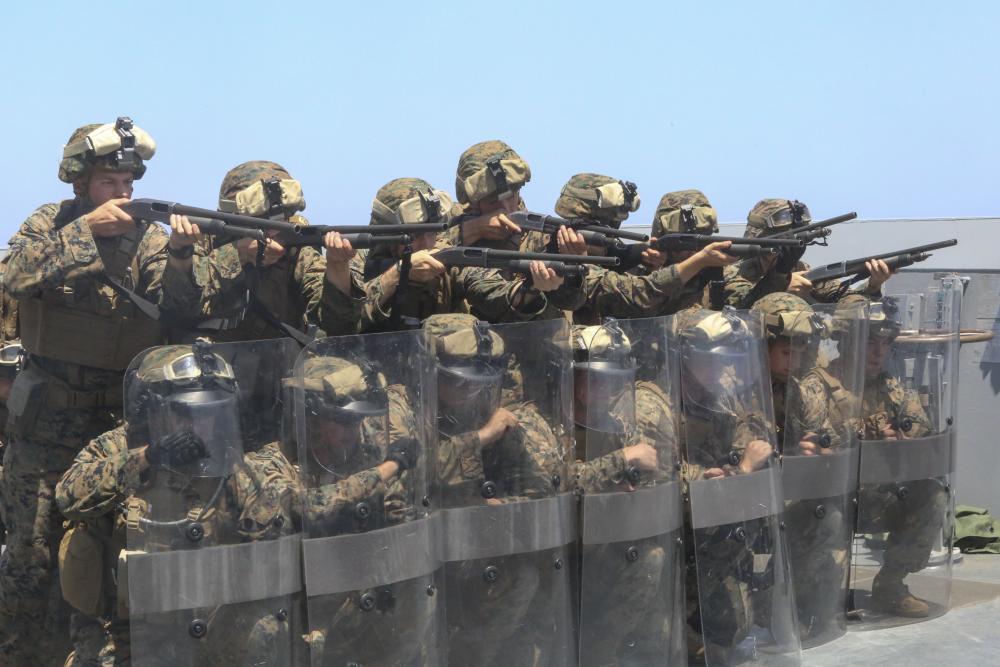
“It was cemented road and most of the blast went out the sides of the drainage ditch,” Lugo said.Īrmy officials estimated that approximately 300 to 400 pounds of explosives were packed underneath the road, and if it weren’t for the cement, Lugo likely wouldn’t be alive today. 50-caliber machine gun when the vehicle crossed a drainage ditch running underneath the road and the roadside bomb detonated. Lugo was operating his MRAP’s turret-mounted. MRAPs, on the other hand, are shaped like a V at the bottom so that when an explosion occurs it deflects the blast away from the center of the vehicle. “It would be like kicking a soda can,” Lugo said. When a Humvee triggered an explosive device, the hull of the vehicle was flat and therefore absorbed the highest concentration from the blast, according to Lugo. While escorting the Jingo trucks from one forward operating base to another, Lugo’s vehicle was hit by an improvised explosive device.īecause the Humvees that Lugo operated as an infantryman during his first deployment were extremely susceptible to explosives, the Army replaced most with Mine-Resistant Ambush Protected vehicles, also known as MRAPs. “They call them Jingo trucks because they deck them out in stuff that sparkles and jingles.”

“It’s the Arabic version of 18-wheeler semitrucks,” Lugo said. Lugo was escorting what many soldiers refer to as “Jingo trucks” when he was severely wounded by a roadside bomb. “That’s how I ended up getting blown up on Aug. “Because of my prior infantry experience they put me in the gun truck for convoy security service,” Lugo said. So Lugo switched jobs to work as an Army water treatment specialist, and after nine months stateside he was deployed back to Afghanistan in 2010.īut once there Lugo found himself in combat once again. And that was something he knew would add unnecessary tension to his marriage. Lugo decided to re-enlist in 2009, but he didn’t want to return to the infantry because that would have meant redeploying almost immediately. “Getting shot at, shooting back and running through villages.” “It was basic combat,” Lugo said about his first deployment. Stationed at Fort Benning along the Alabama-Georgia border, Lugo deployed to Afghanistan in 2008 with the 101st Airborne Division. Lugo enlisted in the Army in 2006 and became what he called a “grunt” – also known as an infantryman. “That and I wanted to give myself some stabilization and the military provided that for me,” Lugo said.

Lugo was about to turn his childhood dream into a reality, but one obstacle remained in his way.Īs a 19-year-old fresh out of high school, Lugo enlisted in the Army because he thought the experience would help with the transition into law enforcement after his service. When the police officer responded and put an end to one of the most traumatic experiences of Lugo’s childhood, it was then that he knew he wanted to become a cop.įast-forward two decades and two tours with the Army in the Middle East.


That was difficult for Lugo, but watching his mom endure constant episodes of domestic violence inflicted by the men in her life was nearly unbearable.Īt the brutal height of one such attack, Lugo got a signal from his mom to run to a neighbor’s house and phone the police for help – something he said she rarely asked him to do. His mother, a single parent surviving on government checks to feed the mouths of him and three younger siblings, bounced around from house to house whenever the rent was too high or the bills began to stack up. POCATELLO – As a 9-year-old living in Stockton, California, Carlos Lugo grew up in a very low-income family.


 0 kommentar(er)
0 kommentar(er)
